Filter by
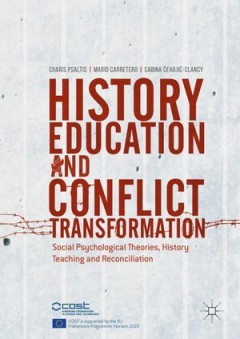
History Education and Conflict Transformation : Social Psychological Theories…
This book is open access under a CC BY 4.0 license. This volume discusses the effects, models and implications of history teaching in relation to conflict transformation and reconciliation from a social-psychological perspective. Bringing together a mix of established and young researchers and academics, from the fields of psychology, education, and history, the book provides an in-depth exp…
- Edition
- -
- ISBN/ISSN
- 9783319546803
- Collation
- XX, 384 halaman
- Series Title
- -
- Call Number
- 370 HIS
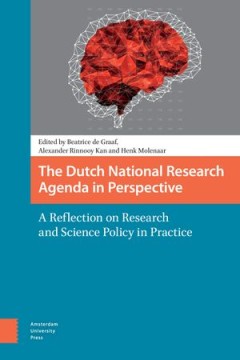
The Dutch National Research Agenda in Perspective : A Reflection on Research …
The Dutch National Research Agenda is a set of national priorities that are set by scientists working in conjunction with corporations, civil society organisations, and interested citizens. The agenda consolidates the questions that scientific research will be focused on in the coming year. This book covers the current status of the Dutch National Research Agenda and considers what changes and …
- Edition
- -
- ISBN/ISSN
- 9789048532827
- Collation
- -
- Series Title
- -
- Call Number
- 320 GRA d

Two Decades of Basic Education in Rural China Transitions and Challenges for…
This book examines how educational change has progressed in three contrasting areas spread across China since 1990, exploring key issues concerning rural education in poor, rich and minority areas. Of the three areas covered in this book, the first is a rich one near Beijing; the second is in the northwest in Shanxi on the Loess plateau; and the third is in Sichuan on the high plateau leading t…
- Edition
- -
- ISBN/ISSN
- 978-981-10-2120-6
- Collation
- -
- Series Title
- -
- Call Number
- -
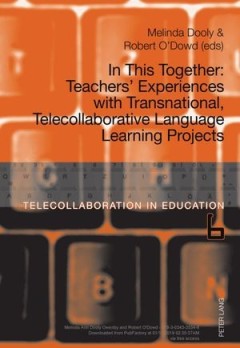
In This Together : Teachers' Experiences with Transnational, Telecollaborativ…
This book provides a nexus between research and practice through teachers’ narratives of their experiences with telecollaboration. The book begins with a chapter outlining the pedagogical and theoretical underpinnings of telecollaboration (also known as Virtual Exchange), followed by eight chapters that explain telecollaborative project design, materials and activities as well as frank discus…
- Edition
- -
- ISBN/ISSN
- 9783034335348
- Collation
- 232 halaman
- Series Title
- Telecollaboration in Education, Volume 6
- Call Number
- 800 OWE i
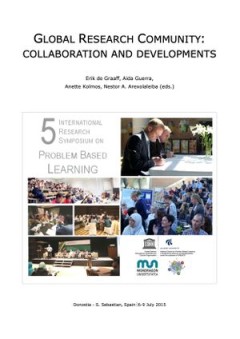
Global Research Community : Collaboration and Developments
The proceedings of IRSPBL cover a number of relevant PBL topics such as assessment, learning outcomes, students’ engagement, management of change, curriculum and course design, PBL models, PBL application, ICT, professional development. This book represents some of the newest results from research on PBL in these different areas.
- Edition
- -
- ISBN/ISSN
- 9788771123043
- Collation
- 537 halaman
- Series Title
- -
- Call Number
- 370 GLO
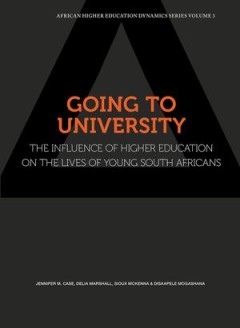
Going to University : The Influence of Higher Education on the Lives of Young…
Around the world, more young people than ever before are attending university. Student numbers in South Africa have doubled since democracy and for many families, higher education is a route to a better future for their children. But alongside the overwhelming demand for higher education, questions about its purposes have intensified. Deliberations about the curriculum, culture and costing of p…
- Edition
- -
- ISBN/ISSN
- 9781928331698
- Collation
- -
- Series Title
- -
- Call Number
- 370 CAS g
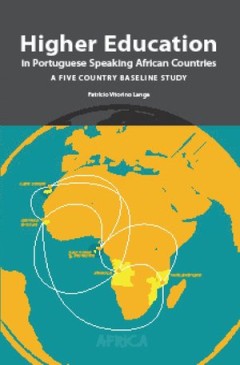
Higher Education in Portuguese Speaking African Countries
This publication is the result of a baseline study of the state of the higher education systems in the five Portuguese speaking countries in Africa (PALOP): Angola, Cape Verde, Guinea-Bissau, Mozambique and Sao Tome and Principe. The project was undertaken by an African international expert in the field of higher education studies and was fully sponsored and supported by the Association for the…
- Edition
- -
- ISBN/ISSN
- 9781920677039
- Collation
- 120 halaman
- Series Title
- -
- Call Number
- 370 LAN h
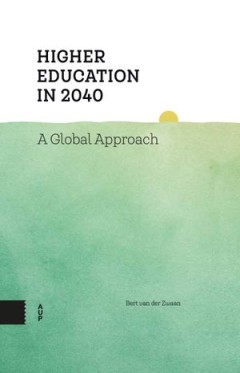
Higher Education in 2040 : A Global Approach
Since the Middle Ages, universities have displayed impressive resourcefulness in their ability to adapt to the changing dynamics and demands of their times. But in the last fifty years, the landscape of higher education - with the emergence of online and mass education, skyrocketing tuition, and a controversial system for ranking institutions - has begun evolving so rapidly and profoundly that …
- Edition
- -
- ISBN/ISSN
- 9789048535163
- Collation
- 256 halaman
- Series Title
- -
- Call Number
- 370 ZWA h
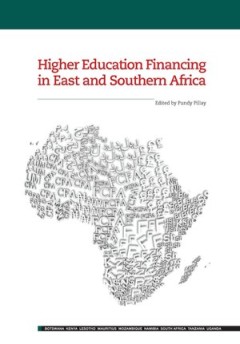
Higher Education Financing in East and Southern Africa
This nine-country study of higher education financing in Africa includes three East African states (Kenya, Tanzania and Uganda), five countries in southern Africa (Botswana, Lesotho, Mozambique, Namibia and South Africa), and an Indian Ocean island state (Mauritius). Higher Education Financing in East and Southern Africa explores trends in financing policies, paying particular attention to the …
- Edition
- -
- ISBN/ISSN
- 9781920355937
- Collation
- -
- Series Title
- -
- Call Number
- 370 HIG
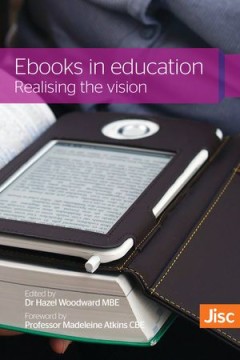
Ebooks in education : Realising the vision
Ebooks are coming of age in education, as this exciting collection commissioned by Jisc demonstrates. Case studies, reflecting ebook success stories across the higher and further education sectors, include: An innovative app to encourage ebook take-up in a Welsh college; A partnership between a library and research centre to create open access monographs and midigraphs; Several examples of crea…
- Edition
- -
- ISBN/ISSN
- 9781909188389
- Collation
- 144 halaman
- Series Title
- -
- Call Number
- 020 WOO e
 Computer Science, Information & General Works
Computer Science, Information & General Works  Philosophy & Psychology
Philosophy & Psychology  Religion
Religion  Social Sciences
Social Sciences  Language
Language  Pure Science
Pure Science  Applied Sciences
Applied Sciences  Art & Recreation
Art & Recreation  Literature
Literature  History & Geography
History & Geography